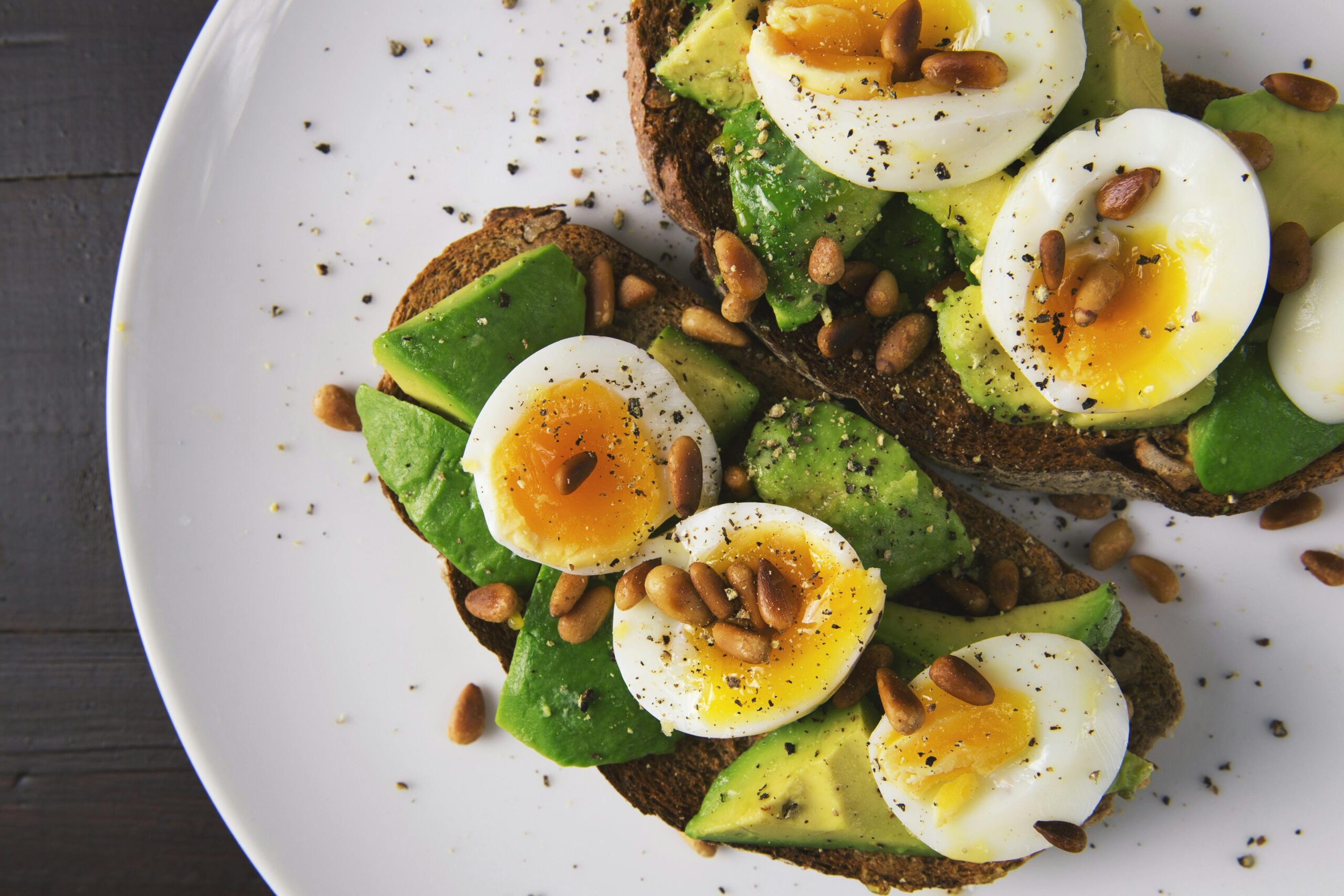Eating healthy is a cornerstone of overall well-being, contributing to physical, mental, and emotional health. Adopting healthy eating habits can be simple and highly beneficial. This guide outlines 8 tips for healthy eating to help you make informed choices, enhance your daily diet, and understand the importance of balanced nutrition.
1. Base Your Meals on Higher-Fiber Starchy Foods
High-fiber starchy foods like whole grains, oats, and brown rice should form the foundation of your meals. These foods provide sustained energy, improve digestion, and help you feel full longer.
Why Choose High-Fiber Foods?
| Benefits | Examples |
|---|---|
| Improve digestion | Whole-grain bread, brown rice |
| Stabilize blood sugar levels | Oatmeal, sweet potatoes |
| Support weight management | Quinoa, barley |
This aligns with the Eatwell Guide, which emphasizes that starchy foods should comprise about a third of your diet.
2. Include Plenty of Fruits and Vegetables
Eating at least five portions of fruits and vegetables daily provides essential vitamins, minerals, and antioxidants. Fresh, frozen, canned, and dried options are all beneficial.
- Pro Tip: Add a mix of colorful vegetables to your plate to maximize nutrient diversity.
- Healthy Foods to Eat Every Day: Carrots, spinach, apples, and berries.
Incorporating fruits and vegetables regularly into your meals is key to following a balanced diet food list.
3. Prioritize Lean Proteins
Protein is vital for building and repairing tissues. Opt for lean sources like chicken, fish, beans, lentils, and tofu.
- Why Include Lean Proteins?
- Support muscle health.
- Promote satiety and help with weight management.
- Contribute to a balanced healthy diet plan.
Example Protein-Rich Meal
| Meal Type | Protein Source | Complementary Foods |
|---|---|---|
| Breakfast | Greek yogurt | Fresh fruit, chia seeds |
| Lunch | Grilled chicken | Quinoa, steamed broccoli |
| Dinner | Lentil curry | Brown rice, mixed greens |
4. Cut Down on Saturated Fat and Sugar
Excess saturated fat and sugar can lead to weight gain, high cholesterol, and increased risk of chronic diseases. Choose unsaturated fats found in nuts, seeds, avocados, and fish.
- Healthy Eating Benefits:
- Lower risk of cardiovascular diseases.
- Improved blood sugar control.
When choosing snacks, focus on healthy foods to eat every day like nuts or low-fat yogurt instead of sugary treats.
5. Stay Hydrated
Drinking enough water is an often-overlooked aspect of healthy eating. Staying hydrated supports digestion, energy levels, and overall health.
- Tips for Hydration:
- Drink 6–8 glasses of water daily.
- Include water-rich foods like cucumbers and watermelon in your diet.
Hydration also complements the 7 healthy eating habits, ensuring your body processes nutrients effectively.
6. Plan Meals and Monitor Portions
Meal planning can help reduce food waste, save money, and ensure balanced nutrition.
- Steps for Planning Meals:
- Prepare a weekly menu that follows the Eatwell Guide.
- Include a variety of food groups: proteins, vegetables, and whole grains.
- Stick to reasonable portion sizes.
- Balanced Diet Food List:Food GroupExamplesProteinsFish, eggs, beansVegetablesSpinach, broccoli, tomatoesWhole grainsOats, quinoa, whole-wheat pasta
7. Don’t Skip Breakfast
Breakfast kick-starts your metabolism and provides essential nutrients to fuel your day. Skipping it can lead to overeating later and reduced energy levels.
- Healthy Breakfast Ideas:
- Whole-grain toast with avocado and eggs.
- Smoothies with spinach, banana, and Greek yogurt.
Including breakfast in your routine aligns with the 8 tips for healthy eating NHS, ensuring you meet your nutritional needs early in the day.
8. Enjoy Your Food but Eat in Moderation
A healthy diet doesn’t mean depriving yourself. You can enjoy treats occasionally, as long as they’re balanced with nutrient-dense foods.
- Key Tips:
- Follow the 8 tips for healthy eating PDF guidelines to track your eating habits.
- Practice mindful eating by savoring each bite.
Mindful moderation ensures you can enjoy your meals without compromising the benefits of 20 benefits of healthy eating.
FAQs About Healthy Eating
1. How can I eat healthy food every day?
Incorporate a variety of foods from all food groups, focusing on whole grains, lean proteins, and colorful vegetables. Plan your meals in advance and opt for natural, minimally processed options.
2. What are some healthy foods to eat every day?
Some examples include:
- Fruits: Apples, bananas, berries.
- Vegetables: Spinach, broccoli, carrots.
- Proteins: Fish, beans, lentils.
- Whole grains: Brown rice, quinoa, oats.
3. What is a balanced diet food list?
A balanced diet food list includes:
- Proteins: Chicken, tofu, eggs.
- Vegetables: Kale, zucchini, sweet potatoes.
- Whole grains: Whole-grain bread, barley.
4. What are the 8 tips for healthy eating NHS?
The NHS recommends:
- Base meals on starchy foods.
- Eat plenty of fruits and vegetables.
- Include protein-rich foods.
- Reduce saturated fat and sugar.
- Stay hydrated.
- Avoid skipping meals.
- Plan and monitor portions.
- Eat in moderation.
5. Are there 7 healthy eating habits?
Yes! Key habits include:
- Eating a variety of foods.
- Focusing on whole grains.
- Prioritizing lean proteins.
- Staying hydrated.
- Eating mindfully.
- Limiting processed foods.
- Planning meals ahead.
By following these 8 tips for healthy eating, you can create a healthy diet plan tailored to your lifestyle. Adopting these habits will bring long-term benefits to your health and well-being. Remember, healthy eating is not about perfection but about consistent, mindful choices that support your goals.


